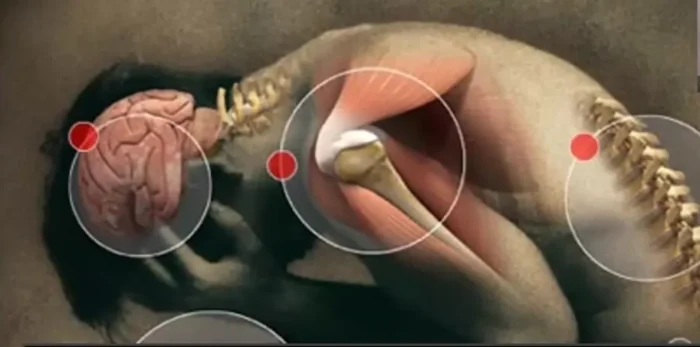Almost 50 million Americans suffer from a condition that can impact many aspects of their life and greatly decrease quality of life. The condition is chronic pain. Chronic pain can interfere with sleep, make it difficult to work, and keep you from participating in activities you enjoy. When chronic pain is severe, it can make it tough to do even simple things, like getting out of bed, taking a shower, or preparing a meal.
It’s difficult to live with chronic pain. At Avance Care, we offer patients solutions that provide relief from chronic pain. The Avance Medical Pain Service, part of Avance Psychiatry, is dedicated to providing our patients with effective treatment for chronic pain. We welcome patients who have complex, difficult-to-treat pain conditions who feel they have hit a dead-end in treatment elsewhere.
The Avance Medical Pain Service is led by Dr. Steven Prakken, a nationally recognized pain expert. Before joining Avance Psychiatry, Dr. Prakken was director of the medical pain service at Duke University, where he built a reputation for successfully helping patients find relief for chronic pain and enjoy a better quality of life.
Dr. Prakken is board certified in psychiatry and pain management. His broad expertise enables him to take a comprehensive approach to chronic pain treatment that combines the latest advances in pain science with a compassionate, patient-centered focus. He listens carefully to his patients on what has worked and what hasn’t and finds solutions that best serve their needs.
What causes chronic pain?
Of the 50 million Americans with chronic pain, nearly 20 million have what is considered high-impact pain. That’s pain that lasts more than six months, and substantially limits activity and quality of life.
Chronic pain can start with back and neck injuries, including herniated disks, sciatica, and other back problems. These very common causes of debilitating pain affect millions of people and are increasing as the population ages.
Other causes of long-term, chronic pain include a wide range of injuries and diseases, including:
- Osteoarthritis of the hands, hips, knees, neck or lower back, and other muscle and join injuries.
- Autoimmune disorders, such as lupus and Crohn’s disease, in which the immune system attacks the tissues of the body.
- Neurological diseases, such as fibromyalgia, complex regional pain syndrome and central pain syndrome.
- Endometriosis, a painful condition in which the tissues that lines the uterus grows outside of the uterine walls.
- Migraine headaches or cluster headaches.
- Nerve damage, or neuropathy, which can cause pain or a burning sensation, often in the hands and feet.
Personalized Care for Chronic Pain
Many people with chronic pain try a variety of medications or injection therapies with steroids or numbing agents. These are helpful for some people. But sometimes, the pain continues to cause significant disruptions in the ability to sleep, work, or to lead a fulfilling life.
Using a patient-centered approach, the Avance Medical Pain Service clinical team treats chronic pain with an expanded array of medications that optimize pain relief and mental health and wellness.
Medications to treat chronic pain can make a big difference in alleviating pain symptoms. But one challenge is that the medications, particularly opioids, can have unwanted side effects. Pain medications may also interact with other medications people are taking for other health issues. In addition, the side effects can differ from person to person – a medication that causes one person to be overly drowsy can cause insomnia in someone else.
Avance Psychiatry’s Medical Pain Service takes a multidisciplinary approach to ensure patients are both as free from pain as possible, and experience minimal side effects from medications used to treat pain. Often, patients come to us having already tried various medications and injectable therapies, only to find that they are still in pain. Sometimes, these patients have even been told by other clinicians that they are out of options. We would never say that to a patient.
Through a functional pharmacology approach, we carefully review all the medications a person is taking to ensure that they are getting the most pain relief with the fewest side effects. We also ensure that they are safe and are not taking a higher dosage or more medications than they need to. Central to our approach is shared decision-making, to make sure that patients understand and participate in treatment choices.
Treating Depression and Anxiety Alongside Chronic Pain
Chronic pain, depression and anxiety are often associated with one another. Many people who suffer from long-term back or neck pain, other musculoskeletal pain, joint paint, nerve pain, or fibromyalgia, also have problems with their mental health. Studies estimate that as many as 85 percent of people with a chronic pain condition also have severe depression, and that experiencing both can aggravate both conditions.
The unrelenting nature of pain can cause people to be irritable and feel sad and hopeless. They may isolate from friends and family, stop exercising or taking part in other activities that boost the mood. Their relationships may suffer. There is also research that suggests pain and depression may lead to changes in the central nervous system and in sensory pathways, which compound both the pain disorder and depression or anxiety.
To treat the pain disorder, it’s essential to also treat co-occurring mood and psychiatric disorders. Dr. Prakken’s unique combination of expertise as a pain medicine specialist and a psychiatrist, allows him to hone in on the right combination of treatments to alleviate physical and psychological symptoms. He works with patients to find the right medications along with other forms of therapy. True relief from chronic pain means feeling better physically and psychologically. To achieve this, both the pain condition and mental health conditions must be addressed.
Treatment Breakthroughs: Ketamine for Chronic Pain and Depression
Avance Medical Pain Service is one of a few, select pain clinics in North Carolina that offer ketamine infusions, a cutting-edge therapy for the treatment of pain and depression. If you’ve already tried a variety of treatments for pain or depression with little success, ketamine infusion therapy may be an option to help you feel better.
Ketamine has long been used as an anesthetic. More recently, lower doses of ketamine given intravenously (via IV) has been shown to alleviate symptoms of severe depression and pain.
How ketamine works isn’t fully understood, but ketamine is thought to “reset” the nervous system’s response to pain. Some people feel an improvement in both their pain and mood within a few hours of their ketamine infusion. Ketamine infusions have also been shown to be very effective in people with complex regional pain syndrome, which can be difficult to treat using other methods.
Individualized Care
When treating pain, what works for one person may work better or not as well for another, due to different pain types. Genetics and metabolism can also impact how well someone responds to a particular medication or therapy. Avance Medical Pain Service offers personalized pain management to find the medications and therapeutic strategies that work best for each person. If you or someone you know is dealing with chronic pain and not getting the relief they need, contact Avance Medical Pain Service at 984.250.8963 or learn more at AvancePsychiatry.com.


